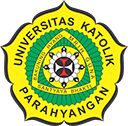Ministry of Education and Culture Regulation No. 3 of 2020, Article 5 states that:
- Graduate competency standards are the minimum criteria for graduate qualifications, which include attitudes, knowledge, and skills as stated in the graduate learning outcomes.
- Graduate competency standards as stated in the formulation of graduate learning outcomes as referred to in paragraph (1) are used as the main reference for the development of learning content standards, learning process standards, learning assessment standards, lecturer and educational staff standards, learning facilities and infrastructure standards, learning management standards, and learning financing standards.
- The formulation of learning outcomes for graduates as referred to in paragraph (1) must: a. refer to the description of learning outcomes for graduates in the KKNI; and
- b. be equivalent to the qualification levels in the KKNI.
The Indonesian National Qualifications Framework (KKNI) is a competency qualification framework that can compare, equate, and integrate education and job training as well as work experience in order to recognize work competencies in accordance with the job structure in various sectors (Ministry of Education and Culture Regulation Number 3 of 2020).
In accordance with the graduate competency standards and the Indonesian National Qualifications Framework (KKNI) as stipulated in Ministry of Education and Culture Regulation No. 3 of 2020, the Graduate Learning Outcomes (GLO) of the UNPAR Doctor of Economics Program consist of 4 (four) components, namely: Attitude (A), General Skills (GS), Knowledge Mastery (KM), and Specialized Skills (SS). Each of these components will be elaborated in the subsequent sub-sections.

